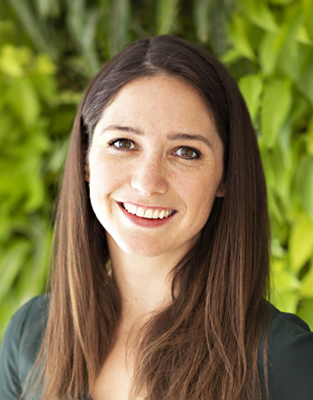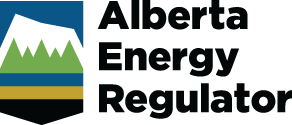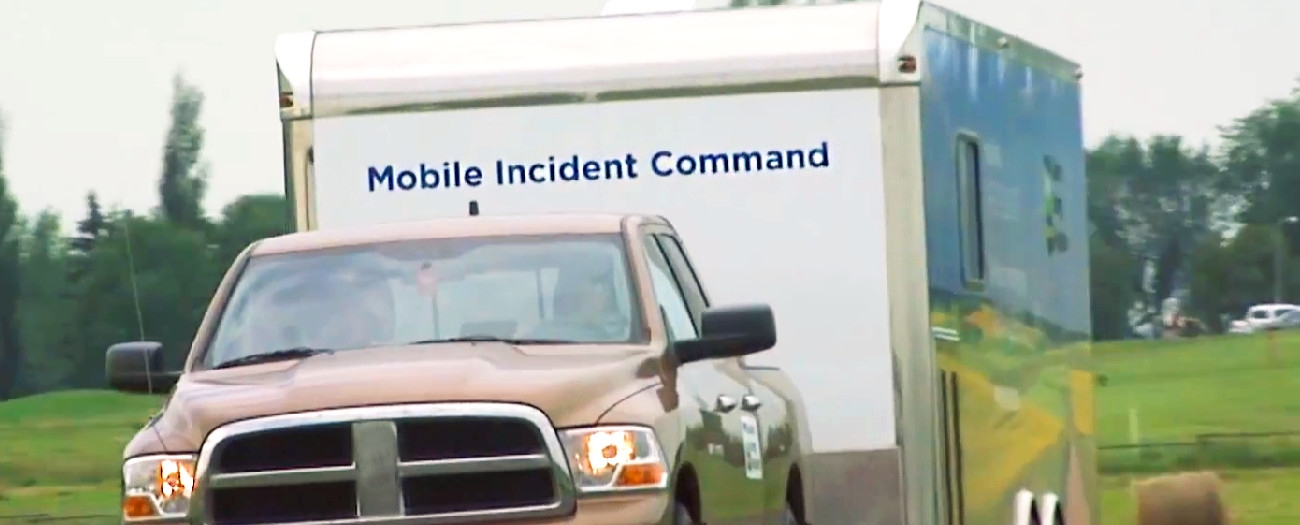Julie St. Louis says AER’s emergency response team is prepared for any incident, anytime, anywhere
Alberta - December 03, 2019
Coordinator with the AER’s Field Incident
Response Support Team
Not all emergency responders arrive with the blare of sirens and tricoloured lights. This is certainly true when it comes to the Alberta Energy Regulator’s (AER) emergency response team, otherwise known as the Field Incident Response Support Team (FIRST). From truck leaks to large pipeline spills (and everything in between), FIRST truly is the industry’s first call in times of need.
We caught up with Julie St. Louis, Emergency Response Coordinator with FIRST to learn more about the team’s role and what it’s like to be out in the field.
Why did you choose to join the AER’s emergency response team?
Julie St. Louis (JSL): The moment an emergency management position opened up at the AER, I couldn’t help but apply. After all, who wouldn’t want to work with an organization that strives to make sure that companies develop energy responsibly in Alberta? I wanted the job so badly that I memorized the AER’s emergency response requirements. Safe to say, I got the job, and since then, I’ve been able to help companies prepare for and respond to oil and gas emergencies.
What are some of FIRST’s responsibilities?
JSL: When an incident happens, such as a sour gas leak or pipeline spill, someone from our emergency response team is deployed to the site. While companies are responsible for responding to incidents to limit harm to the environment, ensure public safety, and clean up the site, it’s our job to ensure they know what needs to be addressed and what requirements they must meet. In some cases, we might have to issue an environmental protection order for the company to act upon, and if needed, we’ll take other enforcement action.
When we’re not in the field, we spend a lot of time working with companies to improve how they respond to emergencies—before they happen. We attend and evaluate dozens of staged emergency exercises across the province year-round. After all, if we can find ways to move quickly from the initial chaos to a streamlined and organized response, then everyone wins.
Where have emergencies taken you in the past?
JSL: Heading to an incident can sometimes mean travelling to very remote areas—far from cellphone reception and even road access. In 2017, I drove to a pipeline spill about two hours from the nearest town. To access the site, temporary roads were built from rig mats to protect the ground, and wildlife fencing was installed to protect the surrounding environment.
When you arrive on site, what runs through your mind?
JSL: When I arrive at an incident, I never lose sight of the fact that we’re often the first face of the AER on site—in that moment we represent all AER employees. By the time we get there, we know that everyone involved is having a bad day—and talking to operators or landowners during an incident is never easy. But if we can lend an empathic ear or point someone in the right direction, then we’ve helped. We want to respond in a way that reflects the AER’s mandate and responsibility that Albertans depend on.
Curious to learn more about how the AER responds to oil and gas incidents? Visit the Incident Response page on aer.ca.
How to Report an Incident or Complaint to the AER
If you think you’ve spotted an oil and gas-related incident in the province, you’re encouraged to call the AER’s 24-hour response line (1-800-222-6514) right away. Inspection and emergency response staff are on call throughout the province, 365 days a year. Call if you
- notice an energy-related incident like an oil spill or pipeline leak;
- have a complaint about a specific energy activity or operation, such as sour gas odours or noise; or
- have concerns about a company’s operations but don’t know its contact information.
An AER representative will help resolve the issue by sending inspectors or emergency responders to the scene or by helping you to get in touch with the right people.
Kara MacInnes, Writer


